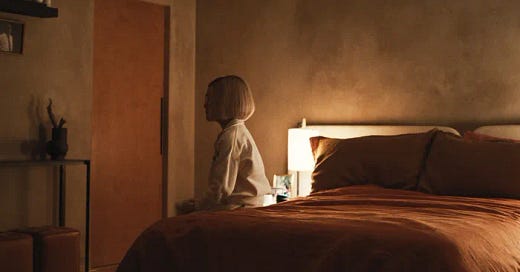This post is about Beef, the Netflix show. One of the cast members, David Choe, joked about sexual assault in a 2014 podcast interview. Beef’s creator, executive producers, and stars have since released a statement saying that Choe’s “story [] is undeniably hurtful and extremely disturbing” but that “David has apologized in the past for making up this horrific story, and we’ve seen him put in the work to get the mental health support he needed” to better himself. I still love the show but am more hesitant about recommending it so enthusiastically. Below, I discuss solely Beef as the show, rather than the environment and context in which Beef was created.
I spend a shocking number of hours thinking about how to subliminally infiltrate people’s consciousnesses—I suppose that is what the original dictionary definition of “influencer” is—when the reality is pretty simple: we place outsize weight on the recommendations of those we already trust. So after hearing about Beef a few times and s…




